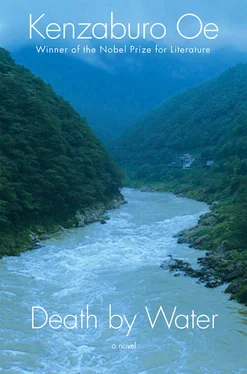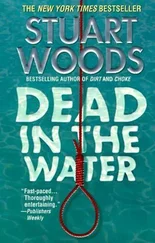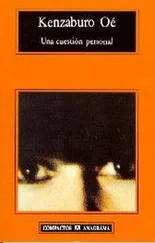Just then Asa reappeared in the dining room and spoke to Masao Anai. “The young guys are going to take the car and go for a drive around Mount Odami, and they’ll return in three hours or so,” she announced. “Your theater apprentices are really an impressive group, by the way. Not only were they completely willing to do some heavy lifting, but they also had to deal with the constraints of being at a stranger’s house … or at least in a stranger’s garden.”
Masao acknowledged the compliment with a slight bow, then gestured toward his second-in-command. “Unaiko gets all the credit — she’s the one who oversees that aspect of their training,” he said.
After the young men had departed Asa made some fresh coffee and Unaiko served it. As we were sitting around the table, Asa turned to me. “Masao was saying that during your stay here, his main objective — and that of his entire group — is to be of assistance any way they can, but they are also hoping you’ll be willing to help them with the play they’re putting together, based on your work,” she said. “I’ll let him fill you in on the details.”
“Ah, well,” Anai demurred with a humorous shrug. “Asa makes us sound very noble and altruistic, but the truth is our motivations are purely selfish. Seriously, since we were already hard at work on a plan for a play that incorporated elements from your entire oeuvre, when Asa told us you were going to be spending time here it seemed like a gift from the gods. So one day when we were talking to her about the project, we asked whether there was any chance you might be willing to listen to what we’ve come up with so far, and she said, ‘I gather that while he’s down here my brother will try to synthesize all the work he’s done till now, so it shouldn’t be too hard to coordinate his project with yours.’ That arrangement seems to make sense, since we’ll both be creating retrospectives of a sort.
“At some point we’d like to ask you to take a look at the treatment for our play-in-progress, but today I’m just going to talk about the general contours of how we’re trying to approach your work, if I may.
“We’ve been extracting individual scenes from your novels and then converting them into dramatic form, one by one. We’ve barely begun to figure out how to make those vignettes flow as a whole, and since we have this rare opportunity to talk to you in person, we think it would add some depth if we could interview you and incorporate your comments into our play. Once we’ve accumulated a stash of interviews, we’ll find a way to fit them in. In the actual production we’ll dress someone up as you (it’ll be one of the actors from the Caveman Group, who will play other parts as well), and that person will be interviewed as an ongoing part of the drama. As for the other characters who emerge from the stories you share in the interviews, they’ll be portrayed by a rotating cast of actors. That’s the method we’re planning to use to create a multidimensional narrative.
“I have already created and performed a number of dramatic works based on your novels, but it’s my intention to make this current project a kind of summation of everything that’s gone before. With that in mind, I’m planning to turn your doppelgänger into the focal point. You might wonder how we’re going to portray such a singular character visually, but don’t worry — I already have something in mind. Once we start talking, I’m hoping our recorded conversations might be useful for you, too, while you’re working on your own project. (We heard from Asa that you’ll be sorting through your writings and combining them with some new material.) And if we can somehow help you, even just by providing some perspective on your previous work, it would be very satisfying for us.”
When Masao Anai stopped speaking, Asa took the floor and addressed her remarks to me. “I did mention to our friends here that you were planning to try to integrate some of your earlier work with the materials in the trunk and then, I gathered, to combine all those elements in a new book, as a sort of last hurrah,” she explained. “You were saying you’d tried to reread your older works but somehow couldn’t get through them, and an idea occurred to me. What if you tried revisiting your previous novels as a joint endeavor with these folks? Masao and Unaiko have been approaching the same task in a very bold and innovative way.”
I had to admit that I felt intrigued by the prospect of seeing my own books anew through the eyes of Masao Anai and his crew, and it struck me as an excellent way of getting a new perspective on my childhood alter ego, Kogii, who was still (quite literally) haunting my dreams.
“In that case, do you think it would be a good idea to try shaping our interviews to focus mainly on Kogii?” I asked.
“Most definitely,” Unaiko said. “And we’re ready to start right now!”
Intentionally avoiding her bright, eager eyes, I glanced over at my sister. In our younger days, Asa had often run interference for me by deflecting the overtures of this type of strong-willed, extroverted woman, but she didn’t seem to feel any need to do that now, and I trusted her judgment. Unaiko’s energetic body language appeared to say, Come on, let’s do this! and she began to pull an assortment of recording equipment out of a canvas tote bag I had noticed earlier, in passing, and deemed too large to be a woman’s purse.
To their credit, Unaiko and Anai didn’t rush me into recording mode. Instead, Unaiko carefully laid out the equipment on the dining-room table, piece by piece, while everyone else looked on. This was my first glimpse into the thoughtful, deliberate methodology that would typify my brief collaboration with the Caveman Group. I realized then that I was in capable hands, and any residual reluctance I might have been feeling simply melted away.
3
A short while later, with the tape recorder whirring, Masao Anai settled himself in a chair and began to speak. “Even though we hadn’t yet obtained your formal permission, Mr. Choko, we went ahead and started brainstorming the conceptual aspects of this new project,” he said. “Of course, we did talk things over with Asa, and her attitude was ‘I don’t foresee any problem with the plan you’ve described, but be sure to approach my brother with caution.’ There’s a fund designed to assist the directors of small theater groups, and in order to qualify for one of those grants a group needs to have won some type of prize or award. Even though you haven’t seen our performance of the play we based on your book The Day He Himself Shall Wipe My Tears Away, I gather you’ve heard about the gratifying praise that production received?
“Okay, that concludes the shameless self-congratulation portion of our program. Now let’s move on to the new project. Our original plan was to follow our success with the dramatization of Wipe My Tears Away (as we call it, for short) with a sequel, but as you know better than anyone, in the case of that novel there isn’t one. So I got the idea of searching through your complete canon for a recurrent motif linking all your books together.
“The leitmotif I found, of course, is Kogii. Now, I find it interesting that in your books the name ‘Kogii’ is assigned to a variety of entities. In the beginning, Kogii was your nickname. Later, you ended up sharing the name with your constant companion: the mysterious — dare I say imaginary? — playmate who supposedly lived at your house and who looked exactly like you. (Your body double, in cinematic terms.)
“Kogii never left your side until one day he simply took off, moving effortlessly through the air, and returned to the forest. In other words, this mystical being whose corporeal form was visible only to you had the ability to levitate and float off into the sky, so even though he looked like you, his powers surpassed those of any human child.
Читать дальше










